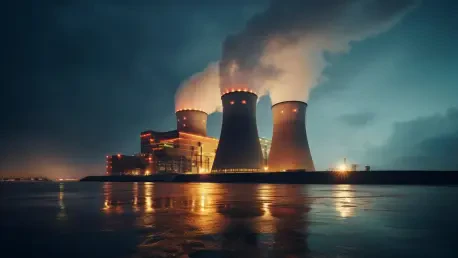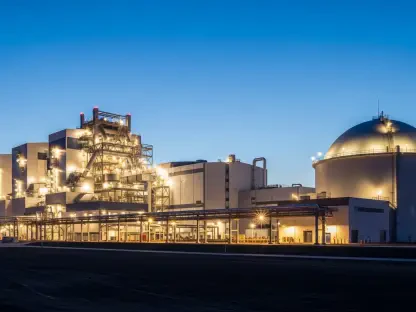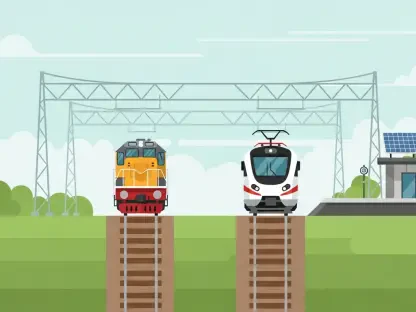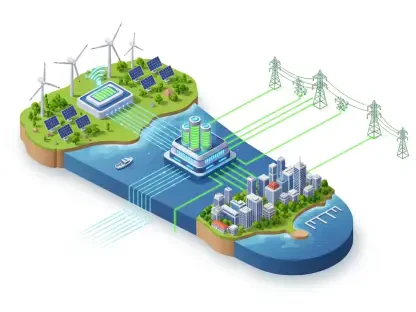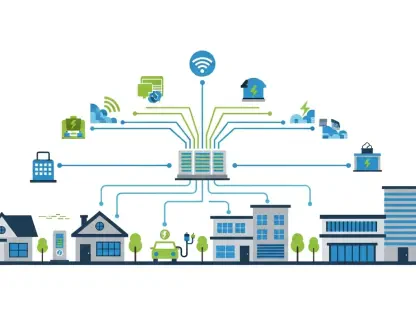In the complex field of international relations and nuclear diplomacy, Christopher Hailstone brings a wealth of experience, particularly in energy management and electricity delivery. As an expert in utilities, he offers unique insights into the current geopolitical landscape surrounding Iran’s nuclear program and Russia’s involvement. This interview explores Russia’s motivations and strategies, the challenges of nuclear diplomacy with Iran, and the broader implications for global security.
What motivated Russia to offer assistance in removing highly enriched uranium from Iran?
Russia is likely motivated by several strategic interests, one of which is to prevent nuclear proliferation. By offering to remove highly enriched uranium, Russia can play a crucial diplomatic role and increase its influence in the international arena, especially in U.S.-Iran relations. Furthermore, Russia benefits from stabilizing the region, reducing the threat of military conflict, which could affect its own security interests.
How would Russia convert Iran’s uranium into civilian reactor fuel?
Russia has the technological capability to reprocess uranium. This involves diluting it to lower enrichment levels suitable for civilian use in nuclear reactors. This process transforms the material from being a potential weapon into a resource for generating electricity, highlighting Russia’s role as a key player in nuclear technology and its capability to contribute to peaceful nuclear programs.
Can you clarify if the nuclear fuel would be returned to Iran for its civilian energy program?
This aspect remains somewhat unclear from the current statements. Russia’s proposal does suggest a willingness to assist in the conversion process, but whether the fuel would return to Iran largely depends on the agreements made in ongoing diplomatic negotiations. Such a decision would likely consider international assurances and monitoring to ensure the fuel’s strict civilian use.
Why does Moscow believe in Iran’s right to develop its own civilian nuclear program?
Fundamentally, Russia supports the principles of the 1970 global Non-Proliferation Treaty, which allows signatory nations to pursue peaceful nuclear technology. Russia sees Iran’s development of its civilian nuclear capacity as a legitimate right under this treaty, provided it adheres to international safeguards and commitments that discourage the development of nuclear weapons.
What impact do the U.S. sanctions have on Iran’s nuclear enrichment after the U.S. withdrawal from the 2015 deal?
The re-imposition of U.S. sanctions has significantly strained Iran’s economy, compelling it to exceed the 2015 deal’s enrichment limits as a form of protest and leverage in negotiations. This escalation reflects Iran’s strategic intent to pressure the international community, especially the U.S., to reconsider its approach and lift sanctions.
How does Russia plan to balance its partnership with Iran and its concerns about nuclear weapon development?
Russia likely aims to maintain a delicate balance by acting as a mediator that fosters Iran’s civilian nuclear ambitions while simultaneously ensuring that these activities do not extend to weaponization. This involves close diplomatic engagement with Iran and coordination with other global powers to uphold international non-proliferation norms.
Could you describe Russia’s previous involvement in developing Iran’s civil nuclear energy program?
Russia has a longstanding history of cooperation with Iran in developing its civil nuclear energy capabilities, most notably through projects like the Bushehr Nuclear Power Plant. This collaboration aligns with Russia’s strategic interest in nurturing a strong diplomatic ally while showcasing its nuclear technology expertise.
How does Russia’s partnership with Iran align with its strategic interests in the region?
This partnership serves multiple purposes, including gaining geopolitical leverage, accessing economic opportunities, and counterbalancing Western influence in the Middle East. Strengthening ties with Iran also enhances Russia’s network of alliances, promoting its role as a key power broker in regional affairs.
What are the main challenges in getting Iran to agree to limit its nuclear enrichment activities?
Iran’s insistence on its right to nuclear technology under the Non-Proliferation Treaty is a significant challenge. Furthermore, achieving alignment among the varying international interests, overcoming historical mistrust, and mitigating the impact of U.S. sanctions are complex issues that complicate negotiations.
How does Russia view the potential use of military force against Iran regarding its nuclear program?
Russia perceives military intervention as detrimental and counterproductive. Such actions could destabilize the region further, trigger retaliation, and potentially disrupt global security. Thus, Russia advocates for diplomatic solutions and respects the legal framework that supports peaceful negotiations.
Why does Russia consider its partnership with Iran critical in U.S.-Iran negotiations?
Russia sees itself as a key diplomatic intermediary that can facilitate dialogue between Tehran and Washington. By leveraging its positive relations with Iran, Russia can offer practical solutions and confidence-building measures to bridge the trust gap created by decades of tension.
Can you explain the strategic partnership deal between Russia and Iran signed earlier this year?
The 20-year deal signifies a commitment to deepened cooperation across various sectors, including energy, defense, and infrastructure. This partnership reflects mutual interests in resisting Western influence and promoting economic resilience against sanctions.
In what ways has Russia facilitated previous diplomatic negotiations between Iran and other world powers?
Russia has historically played a pivotal role in landmark agreements like the 2015 nuclear deal, offering venues for talks and actively participating in negotiation processes. Its diplomatic efforts aim to ensure security and stability, leveraging its relationships with both Western countries and Iran.
How does Russia plan to coordinate with the U.S. and Iran to ease tensions over Iran’s nuclear program?
By positioning itself as a mediator, Russia intends to keep channels open with both parties, offering various forms of diplomatic assistance and technical support. Coordination involves addressing core disputes, finding common ground, and working towards compromises that uphold regional security.
What is your forecast for the future of Iran’s nuclear program and the role of international diplomacy?
As tensions persist, the future will likely hinge on sustained diplomatic engagement. International actors must continue seeking dialogue and mutual understanding to create a viable path forward, balancing Iran’s rights with global security imperatives. Russia will be essential in mediating these discussions and ensuring adherence to non-proliferation goals.
